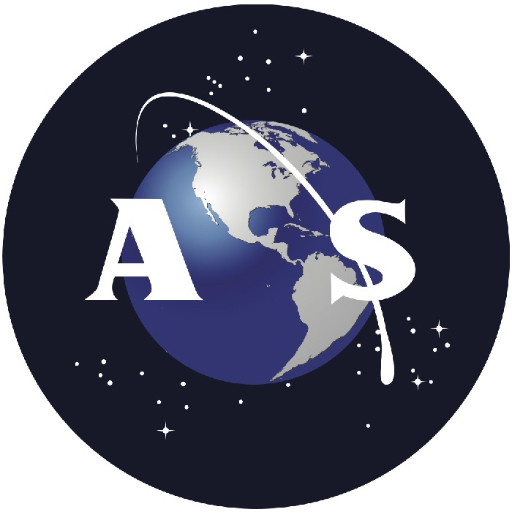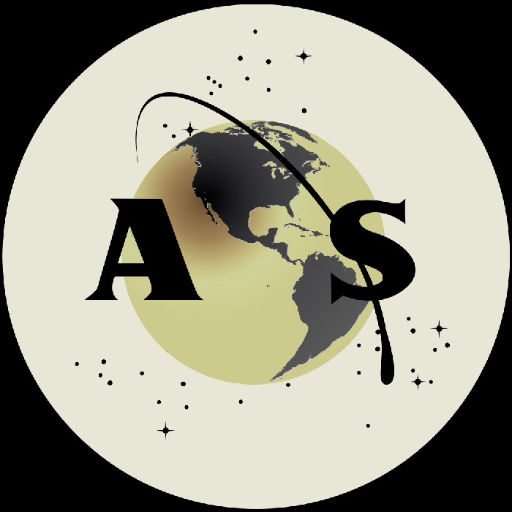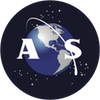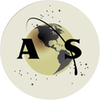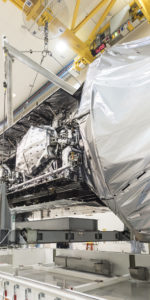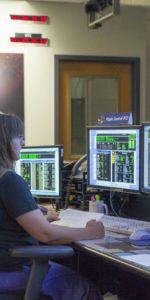![Team from left to right [front row] Mark Keaton (coach), Chelsea Suddith, Katie Burns, Cady Studdard Back row Tracy Burns (mentor), Evan Swinney, Andrew Heath, Niles Butts, Cristian Ruiz, Joseph Cole (coach).](https://www.americaspace.com/wp-content/uploads/2015/06/unnamed-21.jpg)
The competition required teams to create a rocket that separated into at least two stages after launch. The fragile payload inside the main stage—a raw egg and an altimeter—had to be returned to the ground safely by parachute. The U.S. student rocketry team was judged by how closely the rocket reached the required altitude and time, as well as the condition of the egg after landing. The team was also judged on a presentation they had to give to a panel of judges at Raytheon’s air show headquarters. This portion of the challenge, won by Team America, made up 40 percent of their total competition score.
The U.S. student rocketry team launched their rocket to an altitude of 824 feet during a 54.38 second flight at the competition on June 19. A winning score of 49.53 was awarded to the American team, but it wasn’t an easy win.

“The International [challenge] was a totally different competition level. Teams were a lot more experienced,” said Andrew Heath, 17, captain of the RCS Engineers.
The team of seven students competed against 700 teams in the National Finals of the 2015 Team America Rocketry Challenge (TARC) to win the opportunity to represent the U.S. in the international competition in Paris. The RCS Engineers Rocketry Team is made up of Katie Burns (13), Cady Studdard (14), Cristian Ruiz (16), Chelsea Suddith (15), Niles Butts (17), Andrew Heath (17), and Evan Swinny (18). Upon winning Nationals, they were awarded more than $20,000 in prizes and funds for their school, but the hard work didn’t stop there.
“For the past three years, we’ve done qualifying flights but we’ve never been able to place in the top 100, so this is the first year we were able to move on to the Nationals,” explained Heath to AmericaSpace. “I think the first three years we were kind of learning the ropes and this year we had a really strong team. We were really dedicated to what we were doing and we were really motivated. I think that was the key to our success.”
The team worked tirelessly throughout the weeks leading up to the international competition. They had to balance working on their rocket with studying for final exams. As the competition drew closer, team meetings increased from twice a week to every day. Some days lasted as long as four to five hours and others lasted as long as 10.
Four days before the international competition, the team experienced a number of motor malfunctions that caused them to lose three consecutive rockets. With little time left before the competition, the team worked together to build new rockets and test them.
“Within four days we built two more rockets and we were able to test them with about twenty more launches. We didn’t like not having as much data on these as we did on the others but we were able to compensate some,” explained Heath.
However, when the team arrived at the Paris Air Show—the site of the competition—they were faced with another challenge. This was certainly another stressful moment for the team.
“On the day of our launch, in the international competition, we learned that the rail system we’ve been using was different from the rail system they were using in France. We had to modify our rocket and change the launch buttons to accommodate for their rail. They supplied us with some buttons for us to use. We were able to cut off our old ones and attach these quick enough to prepare our rocket for the launch.”

Raytheon sponsored the U.S. Rocketry team for their 10th year as part of the company’s MathMovesU program. The program inspires students to pursue careers in Science, Technology, Engineering, and Mathematics (STEM). The TARC challenge is just one of the programs Raytheon supports that encourages kids to get involved in STEM.
“I think you can see pretty clearly why we sponsors programs like this,” said Allison Jeannotte, director of corporate affairs at Raytheon. “They are already inspired by math and science and they’re already paying it forward. We look at teaching the next generation of engineers, well these guys are 13 – 17 years old and they are already teaching the next generation after them. Seeing that enthusiasm is amazing to us, and seeing the tie between rocketry and robotics, engineering and the math program. You see it’s the same kids returning to those programs. Those kids are the next engineers and they’re the ones we really want to inspire and support.”
Katie Burns is a CAD specialist on the world-winning team. At 13 years old, Burns is an experienced CNC machinist and responsible for cutting out parts of the rocket like the fins, the altimeter holder, and the bulkhead. She is going into eighth grade and plans on being part of the team in 2016. Guided by the help of her older team members, Burns found her first year on the rocketry team a rewarding and unique learning experience.
“The good part is that I can go ahead and learn all of this and when I get older, I’ll know it,” Burns said. “Maybe even be the team captain one day.”
Burns told AmericaSpace that her involvement in the rocketry team stemmed from her involvement in the robotics program at her school. She knew she wanted to be an engineer since she was in second grade. Her inspiration is her father, who works as a mechanical engineer. Many of the robotics students are interested in the rocketry team but only 10 students are accepted.
Raytheon supports students, like Burns, with the goal of getting them excited about STEM at a young age. The company has programs that start as young as elementary schools all the way through college. These programs aim to keep those who are excited about math and science on course so they pursue it as a career. Raytheon traveled with the team to Paris and offered valuable mentoring throughout the competition.
“Raytheon has got to be one of the best companies I have ever dealt with as far as trying to push the STEM program with young kids,” noted Tracy Burns, the RCS Engineers Team mentor. “You couldn’t ask for a better group of people to work with. Raytheon is a prime example of somebody that is putting back into the communities and the nation as far as helping these kids along.”
The winning rocketry team returned to the United States last week. They plan on participating in a number of community outreach programs over the summer months. The team will be gathering at Sloss Lake in their hometown of Russellville, Ala., to launch a celebratory rocket before the annual fireworks show on July 4.
Be sure to “Like” AmericaSpace on Facebook and follow us on Twitter: @AmericaSpace
